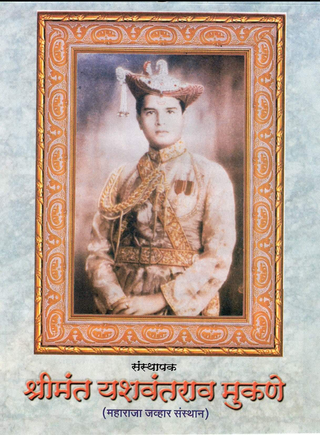Padishah is a title of nobility roughly meaning 'emperor' in Persian languages, primarily used for the Sultan of the Ottoman Empire.
Contents
Padshah, Padshah, Badshah or Padişah may also refer to:
Padishah is a title of nobility roughly meaning 'emperor' in Persian languages, primarily used for the Sultan of the Ottoman Empire.
Padshah, Padshah, Badshah or Padişah may also refer to:

Sultan is a position with several historical meanings. Originally, it was an Arabic abstract noun meaning "strength", "authority", "rulership", derived from the verbal noun سلطة sulṭah, meaning "authority" or "power". Later, it came to be used as the title of certain rulers who claimed almost full sovereignty without claiming the overall caliphate, or to refer to a powerful governor of a province within the caliphate. The adjectival form of the word is "sultanic", and the state and territories ruled by a sultan, as well as his office, are referred to as a sultanate.

Shah is a royal title that was historically used by the leading figures of Iranian monarchies. It was also used by a variety of Persianate societies, such as the Ottoman Empire, the Kazakh Khanate, the Khanate of Bukhara, the Emirate of Bukhara, the Mughal Empire, the Bengal Sultanate, historical Afghan dynasties, and among Gurkhas. Rather than regarding himself as simply a king of the concurrent dynasty, each Iranian ruler regarded himself as the Shahanshah or Padishah in the sense of a continuation of the original Persian Empire.

Maharaja is a Sanskrit title for a "great ruler", "great king", or "high king".
Khan is a historic Mongolic and Turkic title originating among nomadic tribes in the Central and Eastern Eurasian Steppe to refer to king. It first appears among the Rouran and then the Göktürks as a variant of khagan and implied a subordinate ruler. In the Seljuk Empire, it was the highest noble title, ranking above malik (king) and emir (prince). In the Mongol Empire it signified the ruler of a horde (ulus), while the ruler of all the Mongols was the khagan or great khan. The title subsequently declined in importance. During the Safavid and qajar dynasty it was the title of an army general high noble rank who ruling a province, and in Mughal India it was a high noble rank restricted to courtiers. After the downfall of the Mughals it was used promiscuously and became a surname. Khan and its female forms occur in many personal names, generally without any nobiliary of political relevance, although it remains a common part of noble names as well.
Nawab, also spelled Nawaab, Navaab, Navab, Nowab, Nabob, Nawaabshah, Nawabshah or Nobab, is a royal title indicating a sovereign ruler, often of a South Asian state, in many ways comparable to the western title of Prince. The relationship of a Nawab to the Emperor of India has been compared to that of the Kings of Saxony to the German Emperor. In earlier times the title was ratified and bestowed by the reigning Mughal emperor to semi-autonomous Muslim rulers of subdivisions or princely states in the Indian subcontinent loyal to the Mughal Empire, for example the Nawabs of Bengal.

Sardar, also spelled as Sardaar/Sirdar, is a title of royalty and nobility that was originally used to denote princes, noblemen, chiefs, kings and other aristocrats. It has also been used to denote a chief or leader of a tribe or group. It is used as a Persian synonym of the title Emir of Arabic origin.
Padishah, sometimes romanised as padeshah, patshah, padshah or badshah, is a superlative sovereign title of Persian origin.
Shahanshah is a title given to the Iranian Shahs (kings/emperors), meaning King of Kings.
Mirza is a name of Persian origin. It is used as a surname or prefix to identify patriarchal lineage. It is derived from the term Mirzadeh (میرزادہ).
The term paramount ruler, or sometimes paramount king, is a generic description, though occasionally also used as an actual title, for a number of rulers' position in relative terms, as the summit of a feudalistic pyramid of rulers of lesser polities in a given historical and geographical context, often of different ranks, which all recognize the single paramount ruler as their senior, though not necessarily with effectively commanding authority, but often rather a notion like the Western suzerainty.
Qamar is an Arabic name used both as a masculine and feminine, which means "moon", "natural satellite", or "moonlight".
Yar Mohammed may refer to:
Daud Shah is a village in Khyber Province, Pakistan.
Adam Khan is a British sportsman.
Badshah Begum was from 8 December 1721 to 6 April 1748 as the first wife and chief consort of the Mughal emperor Muhammad Shah. She is popularly known by her title Malika-uz-Zamani which was conferred upon her by her husband, immediately after their marriage.

Padshah Begum was a superlative imperial title conferred upon the empress consort or 'First Lady' of the Mughal Empire and was considered to be the most important title in the Mughal harem or zenana. This title can be equivalent with "empress" in English, but in only approximate terms in the Mughal context.
Miangul Abdul Wadud was the Wāli of Swat from 1926 until his abdication in 1949. A grandson of the Akhund of Swat, he was elected as ruler of Swat by a loya jirga in November 1918 and was formally recognized as Wāli of Swat on 3 May 1926 by the British authorities. He ruled from 1918 to 1949, when he abdicated in favour of his eldest son, Miangul Jahan Zeb.
Badshah or Baadshah may refer to: